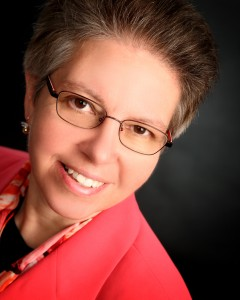God’s Grace in Community – by Cynthia Holder Rich
What is this place, where we are meeting?
Only a house, the earth its floor.
Walls and a roof, sheltering people,
Windows for light, an open door.
Yet it becomes a body that lives when we are gathered here,
And know our God is near.
-Huub Oosterhuis, from What is This Place, 1968Now you are the body of Christ…
-I Corinthians 12:27, NRSV
I moved last year, which means I had a whole new group of people to get to know. My move put me in a large group of people across our mobile society – many, many people in the US move each year. Every one of these people, and all their families, have to start over with the building of relationships in each new place where they move. I serve now in a town that includes a number of companies, and many of the people in town know that every few years, they will be asked to move by their employer. Moving early and often has become an American way of life.
For me, I was glad that I was automatically part of a church – I moved because of a new call to serve as pastor of a congregation. This meant that I had a ready-made community. There was a whole group of people in my new locale who knew a little something about me and who were expecting me to show up. This facilitated the growth of new relationships for me in my new town.
The move facilitated new relationship-building – but didn’t guarantee it. As has become painfully clear to many pastors, there are congregations ready to receive a new pastor, make relationships, and invite him or her into community – and there are congregations who lack this readiness. Some pastors are welcomed, and others – are just not.
And if a group of people who called a pastor are not ready to welcome that new pastor into their community – how do you suppose new people in town not called by the church might be welcomed? How might some of those new people, the few brave souls who stumble into worship of a Sunday morning – how might they be welcomed into relationship among those who make up the body of Christ in that place?
The building of authentic, beloved community in the church is foundational to ministry. Relationships marked by grace and love are crucial to following Christ. We are called to see people as Christ sees them, which means that we are always moving toward greater, deeper understanding of the pain of others as our own ache and suffering, and the joy of others as cause for our own rejoicing.
Are you with me so far? Can I get a show of hands?
So, an overwhelming majority of you see it this way – most of you out there, at least those who are still reading – see that our relationships with each other are central to our following of Jesus – which is great, in that Jesus sees it this way too.
So – if we all agree – and Jesus, whom we follow and name as Lord and Savior, agrees – why is the church often NOT like this? How do congregations become places where people are not welcomed, where relationships are not marked by love and grace? How does a church, living without hospitality and welcome, become a body that comes to life, a body that shines with the life of Jesus, when gathered?
While answers to these questions are numerous, multifaceted and dynamic, here are a few ideas.
- Prayer. The importance of prayer cannot be overstated. Attempts to move a congregation toward positive, constructive, faithful change are in vain without growing the community’s and community member’s relationship with God. Leaders must become comfortable with prayer and enlivened by their prayer life. There are many books available to help people get involved in prayer – one of the best is Martha Grace Reese’s Unbinding the Gospel.
- Telling stories. Give people in the congregation opportunities to tell their faith stories. Let people hear the details of each other’s journeys. Often, the first step toward becoming a place marked by love and grace is for people to experience the love and grace of giving voice to their stories and to be heard by others in the context of faith, hope, and compassion.
- Hearing stories. When members learn how to listen to God and to listen to each other, a next step is to start listening to others – particularly those who live in the neighborhood or region served by the congregation. Congregations are better able to take this step when they have already learned how to offer love and grace to each other, inspired by God.
The church, as Huub Oosterhuis suggests in the hymn text above, becomes a body when people are gathered. Relationships of love and grace engage people in ways that they want to gather, and that can help people move toward wanting to invite others into their body. Over this week, I suggest ways the growth of community in the church can move congregations toward health.
Cynthia Holder Rich directs ecclesio.com.

